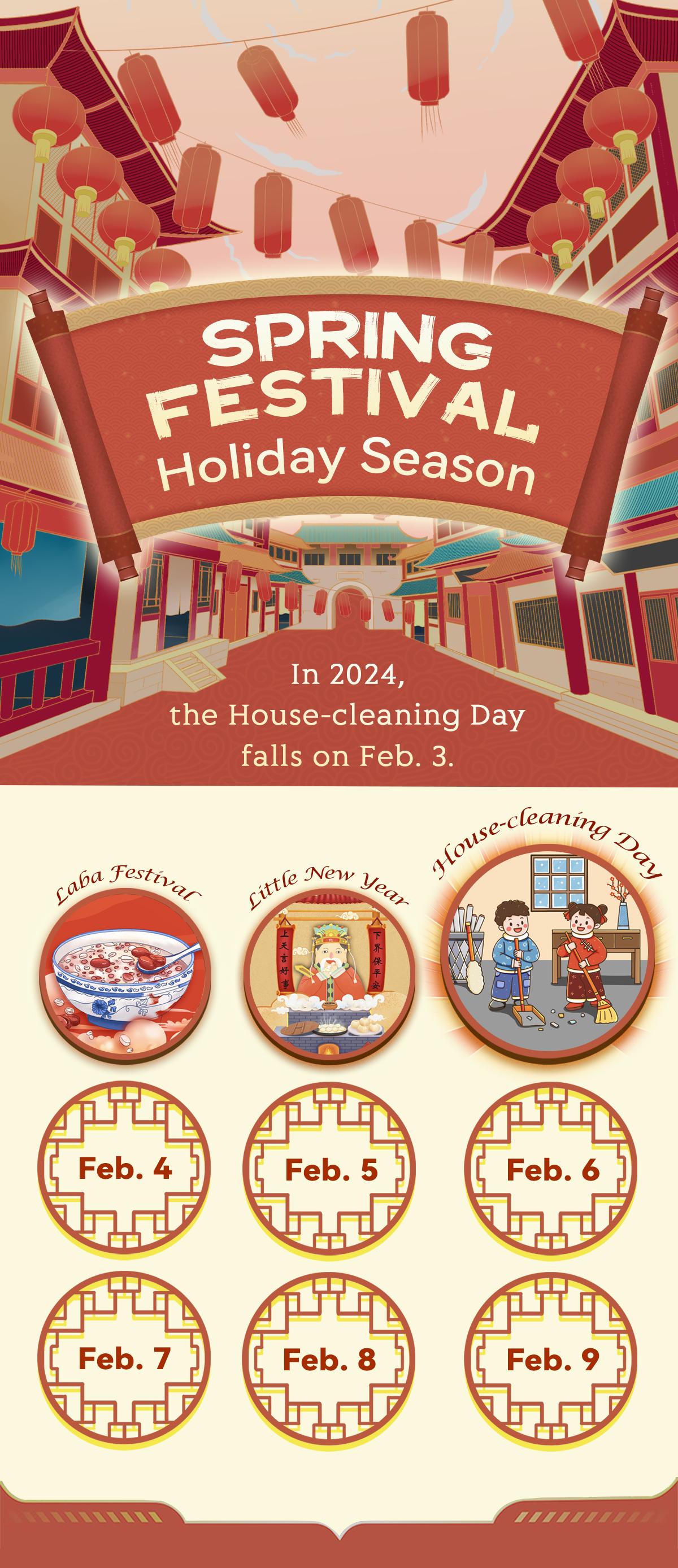
 0 Comment(s)
0 Comment(s) Print
Print E-mail China.org.cn, February 3, 2024
E-mail China.org.cn, February 3, 2024Editor's note:
The Lunar New Year, or Spring Festival, has been officially listed as a U.N. floating holiday as of 2024. This year, it falls on Feb. 10. To enjoy a traditional and fascinating Spring Festival, the most important festival for Chinese people, here are 16 days with unique traditions you won't want to miss this holiday season.
Day 3, House-cleaning Day (Feb. 3, 2024)

Families traditionally clean their homes on the 24th day of the 12th lunar month, seven days before Spring Festival, in preparation for the Lunar New Year. In 2024, the House-cleaning Day falls on Feb. 3.
In the past, families would sweep the courtyard, clean household appliances, wash bedclothes and dredge the farm ditches on this day. The tradition of thoroughly cleaning one's house carries the meaning of dispelling diseases and praying for good health in the coming year.
Day 2, Little New Year (Feb. 2 or 3, 2024)
Little New Year, regarded as the prologue to Spring Festival, is celebrated on the 23rd day of the 12th lunar month in North China and on the 24th day of the same month in South China, eight or seven days before Spring Festival. In 2024, it falls on Feb. 2 and Feb. 3, respectively.
This day is also known as the Festival of the Kitchen God and families usually make offerings to the deity on the day. It is said that the Kitchen God returns to heaven on this day to submit his annual report to the Jade Emperor (the supreme deity of Taoism). Therefore, families offer sticky sweets to him in order to sweeten his tongue so that he only reports good things. Family members, especially children, also enjoy more sweets on this day.
Day 1, Laba Festival (Jan. 18, 2024)
Traditionally, Spring Festival countdown preparations begin on Laba Festival, the eighth day of the 12th lunar month, the last month of a lunar year. In 2024, it falls on Jan. 18.
Laba Festival was originally held to mark the Buddha's enlightenment and has since evolved into a popular folk festival. Eating Laba porridge on this day is an established tradition, as the porridge symbolizes good fortune, long life and a fruitful harvest.
The specialty is usually made with at least eight ingredients; therefore, it is also called eight-treasure porridge. Filled with cereals, beans, nuts and dried fruits, today's Laba porridge is both tasty and nourishing. Local festive food also includes Laba wine, Laba noodle soup, garlic pickled in vinegar and pickled Chinese cabbage.
More about Laba Festival
· Chinese keywords and Laba Festival
· From mom-made porridge to Laba Festival

Go to Forum >>0 Comment(s)